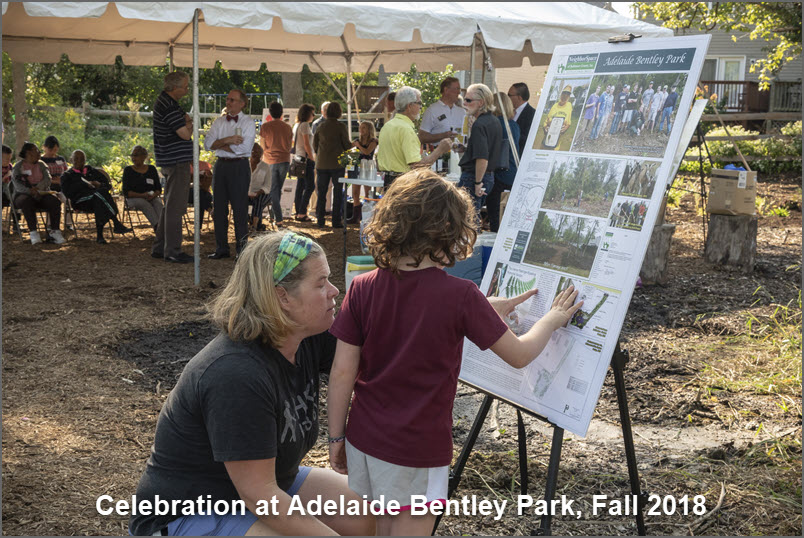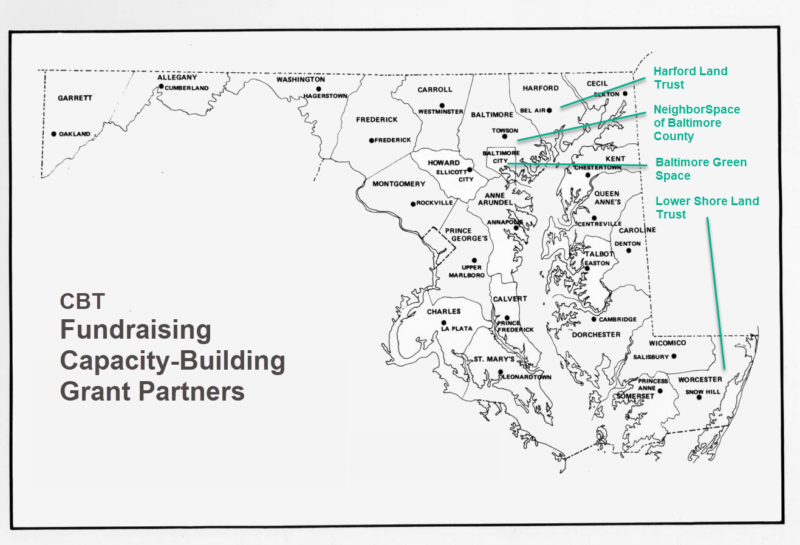
There can be no doubt that perpetuity is a long time. That's why NeighborSpace has to make building the capacity of its stewardship partners, who help the organization care for over 100 acres across 20 different sites, a high priority.
Last year, NeighborSpace received a grant from the Quality of Life Giving Circle to develop a template and training materials for implementing Google Sites websites and other free Google Workspace tools for its stewardship partners that lack such technology. The project was dubbed "Portals for Our Partners." With the template now developed, NeighborSpace pursued and was awarded a grant of $3,292 from the United Way of Central Maryland to implement Portals for Our Partners for the Northeast Towson Improvement Association (NETIA), which helps to steward Adelaide Bentley Park in Historic East Towson. Asked about the value of the project to NETIA, President Nancy R. Goldring commented that "NeighborSpace is helping to bring N.E.T.I.A. into the 21st century! Our new website will help us to get current and stay current while strengthening the bond between existing, extended and future Historic East Towson families. We are very excited about the possibilities! Thank you, NeighborSpace and the United Way!!"
Perpetuity also demands that we NeighborSpace is strong internally. That's why the organization partnered with three other land trusts to pursue a $75,000 grant from the Chesapeake Bay Trust, which was awarded in February, to hire an expert (1) to evaluate the fundraising operations of each of the land trusts; and (2) create a peer learning network and curriculum to improve fundraising collectively.
The other land trusts with whom NeighborSpace is working include two rural land trusts, the Harford Land Trust and the Lower Shore Land Trust, and another urban land trust, Baltimore Green Space. The partnership grew out of an ad hoc, biweekly, Zoom meeting among a half dozen Maryland land trust leaders (nearly all of them women) about how the organizations were grappling with the challenges to operations and fundraising caused by the pandemic. The partners saw the grant opportunity as a way of formalizing the peer learning that has taken place by way of the biweekly meetings and creating a model for peer learning that can be replicated elsewhere.
